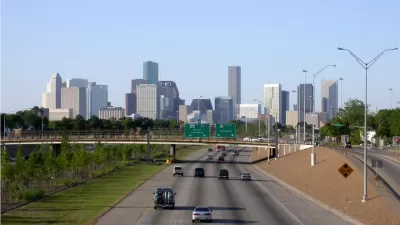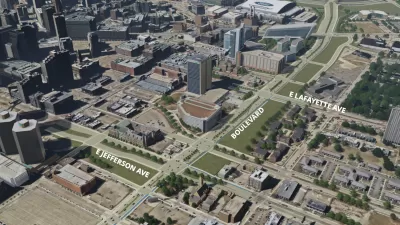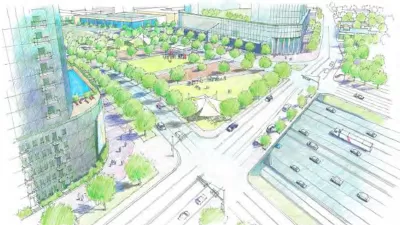When freeways are dismantled, economic, and social benefits often follow. A mid-20th Century mechanistic view fails to understand such outcomes.

On the week that the Congress for the New Urbanism released its twice-yearly Freeways Without Futures list to draw attention to urban Interstates that should be dismantled, a Virginia historian threw cold water on the entire argument.
Swift acknowledges that urban Interstates contributed to a "North American style of daily living that is utterly dependent on the automobile," and that boring these highways through neighborhoods damaged cities and their inhabitants. “The collateral damage was extreme,” he says.
He nevertheless endorses a mid-Century mechanistic view of planning that is at odds with the view of urbanists, who think in terms of synergies. Here’s the mechanistic approach: A road is a road and a car is a car. If you have cars to move, you build a road. You expand the road when necessary.
FULL STORY: Defending urban freeways at all costs ignores the potential of cities

Planetizen Federal Action Tracker
A weekly monitor of how Trump’s orders and actions are impacting planners and planning in America.

Map: Where Senate Republicans Want to Sell Your Public Lands
For public land advocates, the Senate Republicans’ proposal to sell millions of acres of public land in the West is “the biggest fight of their careers.”

Restaurant Patios Were a Pandemic Win — Why Were They so Hard to Keep?
Social distancing requirements and changes in travel patterns prompted cities to pilot new uses for street and sidewalk space. Then it got complicated.

Platform Pilsner: Vancouver Transit Agency Releases... a Beer?
TransLink will receive a portion of every sale of the four-pack.

Toronto Weighs Cheaper Transit, Parking Hikes for Major Events
Special event rates would take effect during large festivals, sports games and concerts to ‘discourage driving, manage congestion and free up space for transit.”

Berlin to Consider Car-Free Zone Larger Than Manhattan
The area bound by the 22-mile Ringbahn would still allow 12 uses of a private automobile per year per person, and several other exemptions.
Urban Design for Planners 1: Software Tools
This six-course series explores essential urban design concepts using open source software and equips planners with the tools they need to participate fully in the urban design process.
Planning for Universal Design
Learn the tools for implementing Universal Design in planning regulations.
Heyer Gruel & Associates PA
JM Goldson LLC
Custer County Colorado
City of Camden Redevelopment Agency
City of Astoria
Transportation Research & Education Center (TREC) at Portland State University
Camden Redevelopment Agency
City of Claremont
Municipality of Princeton (NJ)





























